In this article, the British journalist Owen Jones reflects on empathy and our lack to extend it to certain groups. As this journalist explains, every human being feels empathy with his kind. But then, why do we allow the tragedy the refugees are living? The author concludes that this would not be possible without the dehumanisation of this collective, which makes us see them as inferior beings and prevents us from relating to them.
Almost all human beings have the capacity for empathy. Everyone has the potential to be at least troubled, or feel genuine anguish, about the suffering of other human beings. We recognise that, like us, other humans have insecurities and ambitions; we fall in love and have relationships that end in heartbreak; we worry about our children’s wellbeing; we say things we regret; we’re occasionally kept awake by fears or worries; and we try to impress people we look up to. We see things in others that we see in ourselves, and that binds us together. But what happens when we no longer see a specific group as human?
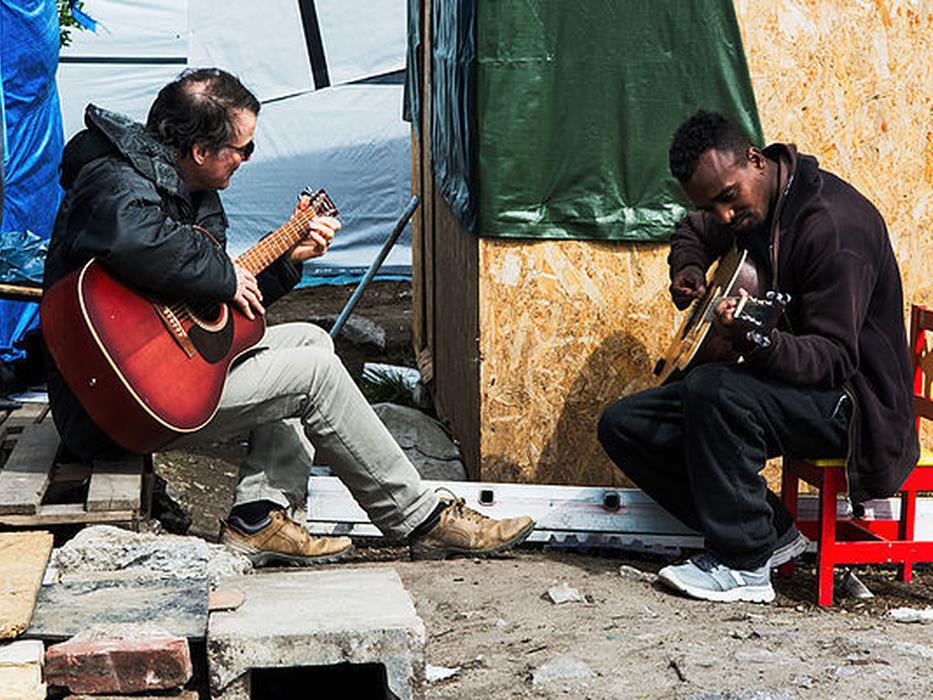 In Men Against Fire – the penultimate episode in Charlie Brooker’s extraordinary new Black Mirror series – soldiers are sent to mow down fanged, shrieking zombie-like “roaches”. They relish slaughtering them – they even derive sexual kicks from doing it. But the victims are actually human beings. It emerges that the soldiers have had implants inserted that – as far as they can see – transform their desperate civilian targets into bloodcurdling monsters deserving of no compassion. As a military psychiatrist tells a soldier distraught at discovering the truth: “Humans are genuinely empathetic as a species. We don’t want to kill each other, which is a good thing, until your future depends on wiping out the enemy.”
In Men Against Fire – the penultimate episode in Charlie Brooker’s extraordinary new Black Mirror series – soldiers are sent to mow down fanged, shrieking zombie-like “roaches”. They relish slaughtering them – they even derive sexual kicks from doing it. But the victims are actually human beings. It emerges that the soldiers have had implants inserted that – as far as they can see – transform their desperate civilian targets into bloodcurdling monsters deserving of no compassion. As a military psychiatrist tells a soldier distraught at discovering the truth: “Humans are genuinely empathetic as a species. We don’t want to kill each other, which is a good thing, until your future depends on wiping out the enemy.”
As the Calais refugee camp burns, there are few who wish to kill those who flee war, persecution or dictatorship. But it is pointless to pretend there is much support for the cause of refugees. As a group their humanity has been systematically stripped away. They are not like you, or your family, or your neighbours. Rather they are seen as a collective blob composed of faceless deceitful criminals, potential rapists and murderers who will steal homes, jobs and resources. If we believed they were like us or our children, we would not tolerate their mass drownings in the Mediterranean.
“Refugees as a group their humanity has been systematically stripped away. If we believed they were like us or our children, we would not tolerate their mass drownings in the Mediterranean.”
Last year, Sky News tweeted about a migrant who “died trying to reach Britain through the Channel tunnel on a freight train”. The responses were not representative of the decent majority: they were extreme sentiments but nonetheless instructive. “I’m sorry are we meant to feel sorry for these criminals??”, asked one. “Oh well one less to drain Britain’s economy got no sympathy for them,” said another. “Nearly made it … bet was chuffed to bits!!!” cackled another. Others were more to the point – a simple “good” sufficed.
It is always comforting to imagine that those who express such cruelty – let alone inflict it – are sociopathic. However these are not sociopaths, who make up a tiny fraction of the population. And there is a significant difference between glibly embracing a stranger’s death on Twitter and killing them yourself.
But the truth is that much of the violence throughout our species’ bloodstained history was not inflicted by people incapable of empathy. Atrocities were committed by people who, in other scenarios, would help a pensioner cross the road, smile endearingly at a stranger’s infant in a train carriage, or come to the assistance of someone they’d never met before who was in distress.
Inferior beings
In the Balkan wars of the 1990s, neighbours, colleagues, even friends, murdered one another. It didn’t matter who they were: they were members of a group who, it was believed, posed an existential threat to the killers’ own community. Western colonialism was predicated on stripping humanity away from colonial subjects. Pseudo-scientists and anthropologists developed theories of Africans being innately inferior to people of European origin. Until 1967, Indigenous Australians were regulated by the country’s law as “flora and fauna”: they were officially wildlife, like the kangaroo. British public opinion would not have tolerated the avoidable famines that potentially killed tens of millions in India if the public had believed Indians were like them.
In the 1930s, nazism enveloped Germany, a nation regarded as one of the most civilised and cultured on Earth. Stripping away the humanity of Jews, Slavs and other “undesirables” was a precondition to murdering them. In the Polish town of Poznan in October 1943, Heinrich Himmler officially confirmed the Nazi Holocaust. “We must be honest, decent, loyal and comradely to members of our own blood and to nobody else,” he declared.
There is no systematic industrialised attempt to exterminate millions of people today, but hundreds of thousands have perished in Syria’s killing fields, and the UN describes the treatment of Yazidis as genocide. Our grim history is littered with other reminders of the logical extremes of dehumanisation. As social neuroscientist Professor Tania Singer puts it, a “natural capacity for empathic resonance can easily be blocked – not just in psychopaths – but in all of us: simply because we think someone was unfair or is not belonging to ‘our tribe’”. This is a theme that I continually return to because the corruption of shared humanity is at the heart of injustice.
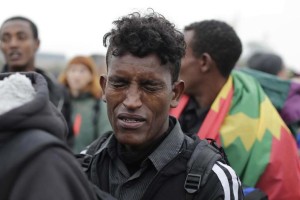
It also provides clues about how we might respond. Political linguists have argued that the right often uses stories to make an argument, while the left falls back on facts and statistics. But we’re human beings, not machines. Take the refugee crisis. What, at least momentarily, shifted attitudes? It was when a little Kurdish boy, Alan Kurdi, washed up dead on a Turkish beach. All of a sudden, refugees were human beings again: like the kids playing football on your street.
In Britain, benefit claimants have long been subjected to relentless demonisation. I often recall the case of Stephen Taylor, a 60-year old army veteran who had his benefits stopped because he wasn’t actively seeking work. Instead he was volunteering for the Royal Legion, raising money for injured former comrades. It’s a story that always provokes a sharp intake of breath: mentioning the hundreds of thousands who have had their benefits stopped does not. Similarly, responding to a Daily Mail story about a benefit “scrounger” living in luxury with the government’s own estimate of benefit fraud – that is, 0.7% of social security spending – doesn’t work. The story trumps the statistic.
Injustice becomes less tolerable if the victims are human beings rather than cockroaches. Dehumanisation leads to the tolerance of suffering at best, to murder at worst. Restoring our shared humanity isn’t easy, not least because powerful interests – from media outlets to politicians – relentlessly seek to undermine it. But it is the only hope for a troubled world.
Source: The Guardian

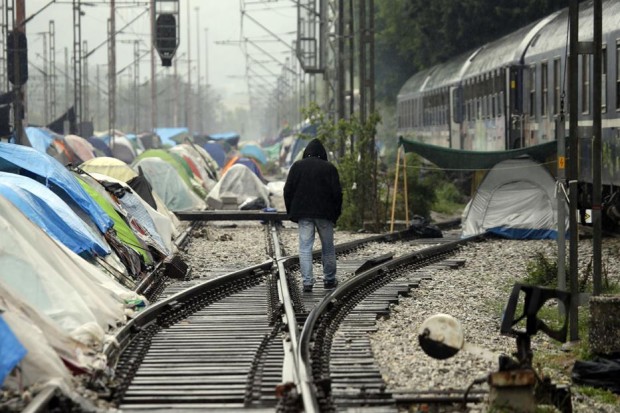
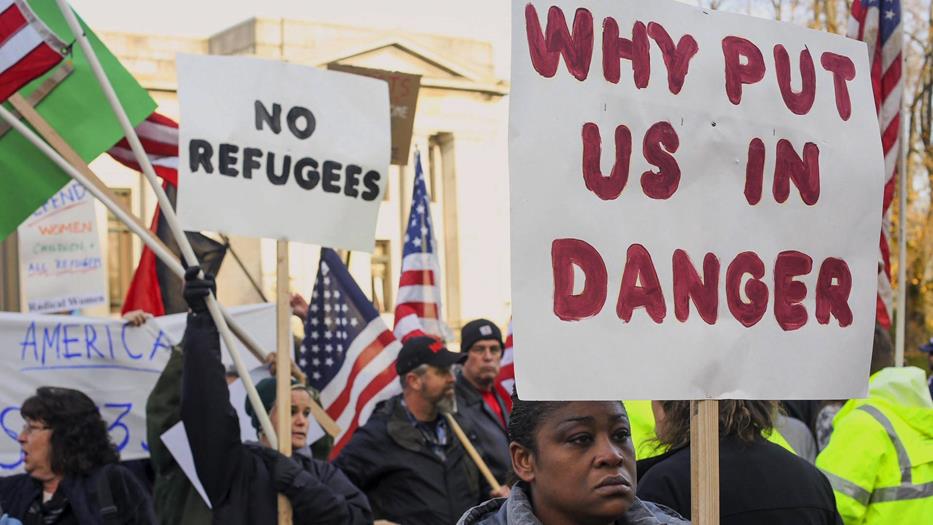

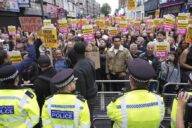











No Comments